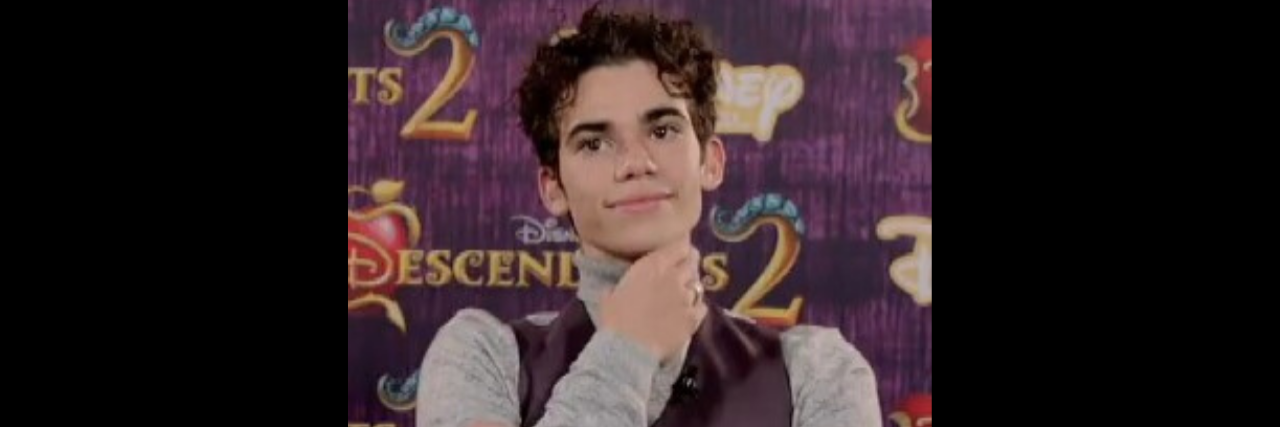Ad Rock, Neil Young, Li’l Wayne, Bud Abbott, Prince, Danny Glover, Hugo Weaving, Susan Boyle, Agatha Christie, Florence Griffith Joyner, Lindsey Buckingham, Cameron Boyce…
Actors, athletes, musicians, authors — celebrities who have or had seizure disorders and epilepsy.
Other relevant stories:
• How Does Epilepsy Affect Daily Life
• Famous People with Epilepsy
• Epilepsy Triggers
Cameron Boyce passed in his sleep on July 6, 2019 after a seizure. He was 20 years old. A Disney star, he was known to my daughters as the son of Cruella Deville in the film “Descendants.” His recent death has made me more angry than I would have imagined, and more conflicted than I would have expected.
You see, his epilepsy was a secret. His family confirmed it days after his death, but its role in his death sent shockwaves through the epilepsy community. Increased fears of sleep seizures tore through online forums, with posters saying things like “My 11-year-old has epilepsy. I’m so frightened this could happen to her!”
I am angry because the stigma attached to epilepsy is still so strong that we often don’t hear about a celebrity’s disorder until it becomes graphically public.
I’m conflicted because wearing your stigmatized condition out in public is a very tough choice to have to make, and the more “public” you are, the greater chance there is for people to react negatively. But if you never do, there is no chance they’ll react positively!
Epilepsy is an invisible disability, so many of us can keep our silence and the public might never find out. Silence is our privilege, but epilepsy has a way of breaking that silence all on its own.
Epilepsy has an image problem, but if we keep it in the shadows, that image will always be associated with fear and shame.
Shame is what I’m most concerned with today.
Our culture tells us it’s shameful to lose control of your muscles, lose control of your jaw so you drool all over your chest, lose control of your bladder so you piss down your own leg, and lose control of your diaphragm so you make involuntary vocalizations, often at a shout. It’s shameful to lose control.
How can we change epilepsy’s image if no one is willing to speak up about it? If no one our children look up to is willing to be upfront about something so “embarrassing,” how can we expect our children to be upfront with us?
I can’t help but think about the lives Cameron Boyce could have changed had he been public about his epilepsy. He was found dead in his home after a seizure due to an “ongoing medical condition,” later confirmed by his parents to be epilepsy. What a way for his fans who live with epilepsy to find out! They may now think, “You were like us, and you hid it. Now you’re dead! Why did you hide it? I’m going to hide it too. It’s scary, and I don’t want anyone to be scared of me!”
It is your right not to talk about your stigmatizing condition, and no one has the right to know private information about you, particularly medical information. A celebrity is not obligated to become the poster child for any disability. But I always come back to the grim truth that if we don’t talk about it, we will never talk about it. I might have an impact in my own small community, but I lack the platform, the star power of a Hugo Weaving, Danny Glover or Cameron Boyce.
I am not angry at Cameron Boyce or his family. Victim blaming is inappropriate, insensitive and downright wrong. I am angry at the ingrained phenomenon of cultural silence that prevented them from speaking until it was too late.
Won’t someone step forward? There are kids out there who are scared. Kids who feel ashamed. Kids who feel so alone in their disability that they believe no one understands what they are going through. These kids look up to you, celebrity who is hiding your epilepsy. They’ll listen to you. Say something to them. Don’t continue to let them think their condition is shameful. Show them living with epilepsy doesn’t mean you have to give up on your dreams. Show them you can be successful, even famous with this disorder.
I have suffered due to the shame surrounding epilepsy and I don’t want others to go through the same thing. We can do something about this, but we have to be able to talk about it first.
Silence equals death, for ourselves and for our children.
Image via Wikimedia Commons/Kindercorrespondent

